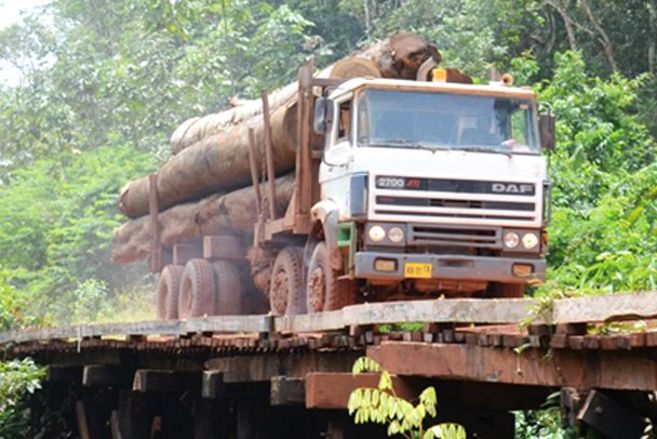

Institut für
WF Waldwirtschaft
Veröffentlichungen von Dr. Andreas Kempe
- 0
Lautenschläger T, Kempe A, Bunk K, Mawunu M, Neinhuis C (2019) Biomechanics and traditional use of Raphia matombe rachis in northern Angola. BioResources 14(2):3364-3378, DOI:10.15376/biores.14.2.3364-3378
- 1
Kempe A, Neinhuis C, Lautenschläger T (2018) Adansonia digitata and Adansonia gregorii fruit shells serve as a protection against high temperatures experienced during wildfires. Bot Stud 59:7, DOI:10.1186/s40529-018-0223-0
- 2
Masselter T, Kempe A, Caliaro S, Neinhuis C, Speck T (2017) Comparing structure and biomechanics of extant Carica papaya and Ochroma pyramidale stems allows re-evaluating the functional morphology of the fossil 'seed fern' Lyginopteris oldhamia. Rev Palaeobot Palynol 246:258-263, DOI:10.1016/j.revpalbo.2017.07.007
- 3
Senwitz C, Kempe A, Neinhuis C, Mandombe JL, Branquima MF, Lautenschläger T (2016) Almost forgotten resources - biomechanical properties of traditionally used bast fibers from Northern Angola [online]. BioResources 11(3):7595-7607, zu finden in <https://bioresources.cnr.ncsu.edu/resources/almost-forgotten-resources-biomechanical-properties-of-traditionally-used-bast-fibers-from-northern-angola/> [zitiert am 29.08.2023], DOI:10.15376/biores.11.3.7595-7607
- 4
Lautenschläger T, Kempe A, Neinhuis C, Wagenführ A, Siwek S (2016) Not only delicious: Papaya bast fibres in biocomposites [online]. BioResources 11(3):6582-6589, zu finden in <https://bioresources.cnr.ncsu.edu/resources/not-only-delicious-papaya-bast-fibres-in-biocomposites/> [zitiert am 29.08.2023], DOI:10.15376/biores.11.3.6582-6589
- 5
Kempe A, Göhre A, Lautenschläger T, Rudolf A, Eder M, Neinhuis C (2015) Evaluation of bast fibres of the stem of Carica papaya L. for application as reinforcing material in green composites. Ann Res Rev Biol 6(4):245-252, DOI:10.9734/ARRB/2015/15407
- 6
Kempe A (2015) The non-woody way to the canopy : functional anatomy, morphology, and biomechanics of selected grasses (Poaceae), sedges (Cyperaceae), rushes (Juncaceae) and papaya (Caricaceae). Dresden: Technische Universität, 105 p, Dresden, Techn Univ, Fak Mathematik und Naturwiss, Diss, 2015
- 7
Kempe A, Lautenschläger T, Lange A, Neinhuis C (2014) How to become a tree without wood - biomechanical analysis of the stem of Carica papaya L.. Plant Biol 16(1):264-271, DOI:10.1111/plb.12035
- 8
Kempe A, Lautenschläger T, Neinhuis C (2014) Reorientation in tilted stems of papaya by differential growth. Int J Plant Sci 175(5):537-543, DOI:10.1086/675694





